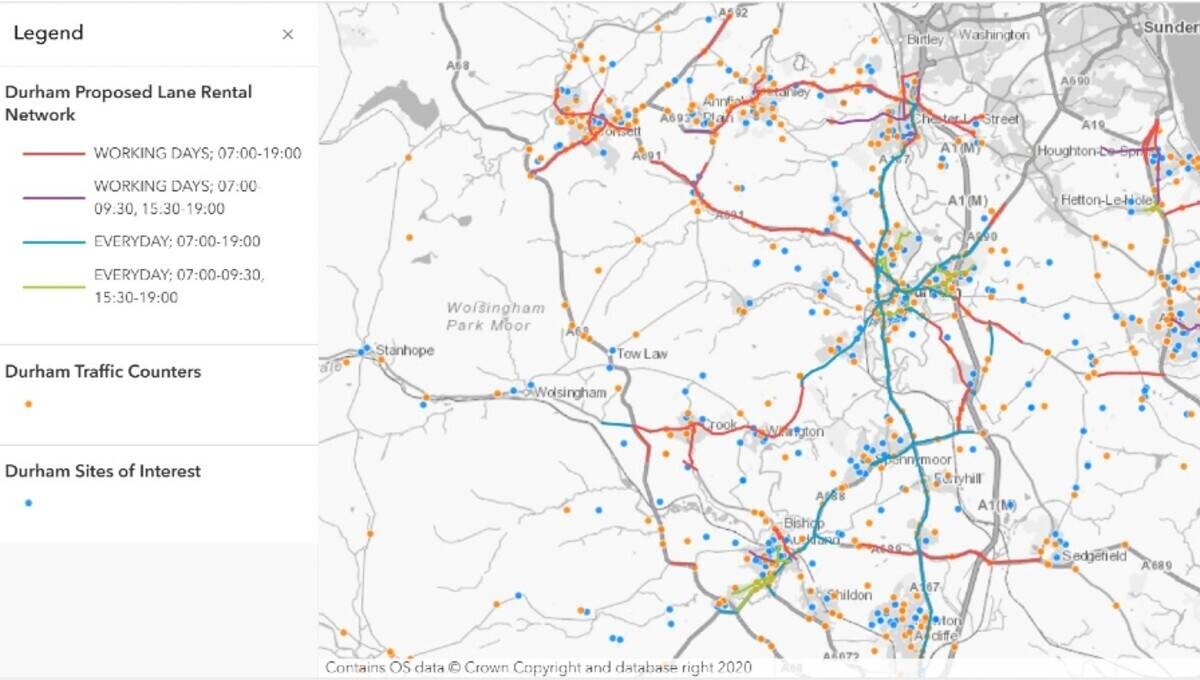The NLPG is compiled from data supplied by local authorities and is the most comprehensive source of property information available today, providing a location for every property in England and Wales. Today and throughout its gestation, the NLPG project has been directed by the Improvement and Development Agency (IDeA) and its private sector partner, Intelligent Addressing.
The NLPG, which comprises over 32m entries in England and Wales, goes far beyond traditional sources of property and address information primarily because it is created and updated at source by the 376 local authorities in England and Wales. These are the very organisations tasked with creating street names and numbers and who supply this information to the Post Office for the allocation of postcodes. The NLPG goes much further than postcodes by providing precise locations for every property, even those such as churches, individual buildings in a hospital complex and electricity sub-stations that do not have a postal address. Being able to identify buildings of this sort along with their precise geographical location is of critical interest to the emergency services who need exact incident location wherever it is and for insurance companies who analyse risk at an individual property level rather than at a postcode level. Moreover the incentive in terms of efficient revenue collection from Council Tax and Non-domestic Rates is sufficient to ensure that local authorities are diligent when it comes to maintaining the gazetteer at a local level so users can be confident both of its completeness and currency.
A master list of addresses means that when it comes to property identification all users are communicating in the same language. In the NLPG this is facilitated by the use of a UPRN (Unique Property Reference Number), which provides the linking mechanism between multiple application datasets. At a local level it facilitates every single customer interaction, as service delivery is ultimately linked to where we live.
The NLPG is already responsible for quantifiable business benefits and efficiencies within local authorities and is at the heart of transformational government. To the wider public sector, central government and the private sector the NLPG offers unrivalled opportunities for research and analysis, policy making and planning, data cleansing, fraud protection, environmental protection, demographics, licensing and much more. This is more than reflected in the wide variety of attendees at the NLPG launch.
"We are delighted to have launched the NLPG for commercial use" said Michael Nicholson, Managing Director of Intelligent Addressing. "Commercialisation secures the future of this groundbreaking project and opens up the way for third party users to benefit from and contribute to its continual improvement. We have had a massive response from potential users who can see the business benefits of this national dataset which pinpoints every property in England and Wales."
12th May 2008
Notes to Editors:
The NLPG was initiated in 1999 to become the master address dataset for England and Wales and the central hub for the 376 address creating Local Authorities and their Local Land and Property Gazetteers (LLPGs). Based on unique property reference numbers (UPRNs) the underlying principle of these gazetteers is to provide a single definitive ad dress database for all departments and systems across a local authority in order to cut costs, improve efficiency and service delivery.
The dataset enables various local authority departments - from revenue collection and environmental health, to social security, the electoral roll and education - to now offer true âjoined up' government. The benefits also go beyond service delivery. Fraud prevention, tax collection and disaster planning all benefit from the fact that each property is given a âUnique Property Reference Number' which transcends (property) numbers, names, descriptions (such as âThe Nursing Home') and postcodes. UPRNs are assigned for the full life of the plot and/or building.
The project was given a significant boost in 2005 with the introduction of the Mapping Services Agreement, which committed all Local Authorities to bringing their gazetteers up to standard and to start submitting regular updates to the NLPG hub for use by national and regional organisations. Collaboration with DNA-S (Definitive National Addressing for Scotland) who use the same BS7666 processes and database schemas means that a British addressing infrastructure is now a reality.
Intelligent Addressing is a specialist private sector consultancy (an SME) employing recognised experts in addressing. It was originally set up to help develop the National Land and Property Gazetteer (NLPG) on behalf of local government and now manages the NLPG and NSG central data hubs under the terms of the Mapping Services Agreement (MSA) with local government.
Intelligent Addressing contact:
Gayle Gander, Head of Marketing | 0207 747 3500 | E-mail: [email protected] | www.intelligent-addressing.co.uk, www.thensg.org.uk, www.nlpg.org.uk
Editorial enquiries and colour separation requests:
William Allbrook | T: 01666 826641 | F: 01666 824668
The Improvement and Development Agency (IDeA) The IDeA works in partnership with all councils, to enhance the performance of the best, accelerate the speed of improvement of the rest, and develop the sector as a whole. IDeA has brokered the Mapping Services Agreement (MSA) with Intelligent Addressing to develop the NLPG and NSG, through the Local Government Information House (LGIH), a wholly owned subsidiary of the Agency.
Working in partnership with the local government community developing national infrastructure projects that enable councils to deliver local services more effectively, LGIH acts as an intermediary between the public and the private sector enabling it to negotiate with private companies on behalf of local authorities in order to provide key parts of a technical infrastructure for improved service delivery.
The NLPG is a joint venture between the Information House and Intelligent Addressing Limited.
IDeA contacts:
Steve Brandwood, Programme Manager | 020 7296 6615 | Email: [email protected] | www.idea.gov.uk
Media: Paul Bailey | 020 7296 6529



